What Bernie Sanders’ Election Would Mean for Legalized Drugs





 Email to a friend
Permalink
Email to a friend
Permalink
Wednesday, August 19, 2015
Brendan Murray GoLocalPDX Newsteam
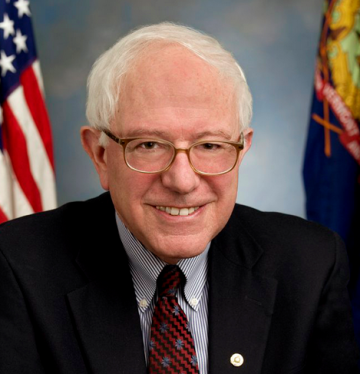
Democratic Presidential candidate Bernie Sanders; Photo courtesy of wikipedia
Democratic Presidential candidate
Bernie Sanders has called America’s “War on Drugs” a failure and has promised to transform America’s drug policy if elected to the White House.
So what would that look like?
Sanders has said he plans to end the program that has spent more than $51 billion annually and more than $1 trillion since 1980, according to a report by the Drug Policy Alliance.
“If any political candidate, Bernie Sanders or otherwise, dismantled the war on drugs, that would be huge,” Leah Maurer, co-president of Portland’s Women Grow chapter, told GoLocal. ““I think this is going to be the next great industry, the job possibilities are endless, but right now that’s being stifled.”
The independent Senator from Vermont says its time to stop spending money and resources punishing and imprisoning non-violent offenders. He’s proposed treating the underlying mental health issues that cause drug addiction and legalizing marijuana use.
“Millions of lives have been destroyed because people are in jail for nonviolent crimes,” Sanders’ campaign website reads. “For decades, we have been engaged in a failed ‘War on Drugs’ with racially-biased mandatory minimums that punish people of color unfairly. It is an obscenity that we stigmatize so many young Americans with a criminal record for smoking marijuana, but not one major Wall Street executive has been prosecuted for causing the near collapse of our entire economy.”
DC Track Record
Sanders’ voting record backs up his stance on drugs. During his time on Capitol Hill, Sanders made a number of votes against the enforcement of America’s drug policies.
As a Representative in September 1998, Sanders voted against subjecting federal employees to random drug tests. He voted to legalize medical marijuana in July of 2001, and voted against military border patrol to help battle drug trafficking in September of the same year. After being elected to the Senate in 2007, Sanders voted twice to exempt industrial hemp from marijuana prohibition, once in August of 2012 and again in March of 2013.
The election of Sanders, or any candidate who backs the end of the federal War on Drugs, would be a “welcome change” to the country’s drug policy, according to Chris Brown, press secretary for Americans for Safe Access.
“It’s a failed policy,” Brown told GoLocal. “Repealing the War on Drugs would allow the public to see marijuana, and all drugs, in a nonidelogical view and allow them to analyze it for all its properties.”
Brown also said the repeal of the War on Drugs would ensure that patients who depend on the drug to treat legitimate maladies, particularly pain relief, can receive their medicine without fear of becoming an outlaw.
Paul Armentano, deputy director of NORML, the National Organization for the Reform of Marijuana Laws, told GoLocal the criminalization of cannabis is a “disproportionate response to what is at worst, a public health issue, not a criminal justice issue.”
Armentano also said that those prosecuted for cannabis-related crimes are disproportionately minorities and young people. This can cause them to distrust government and law enforcement agencies. “This disenfranchises entire cohorts of U.S. citizens who, rather than see law enforcement agencies as protectors, see them as instruments of their oppression.”
He also responded to critics’ claims that legalization will allow teenagers and children freer access to marijuana. He said that criminalizing the substance had not proven effective, and it was time for new techniques.
“Alcohol and tobacco use in teenagers was not driven down by illegalizing these substances for adults, but by educating the target audience and imposing and enforcing age requirements,” he explained. “I don’t see why that would not work when it comes to cannabis.”
Portland’s Maurer said she believes that the current policy keeps citizens, particularly women, away from what could be successful, high-paying jobs.
“Right now, there are lots of people, particularly women, many of whom are mothers, who are hesitant to get into this new industry because they’re afraid of getting in trouble with the law,” said Maurer.
‘Not so fast’ say critics
Ron Brogan, a spokesman for the Drug Abuse Resistance Education, known more commonly as D.A.R.E., told GoLocal that despite the assertion by legalization advocates that prohibition has failed, drug use is declining.
“The story that’s not really told is that the drug policing efforts in place are working,” he said. “Cocaine use is down nearly 85 percent since its peak, and drug use in general is significantly down. Prohibition is working.”
Calvina Fay, executive director of the Drug Free America Foundation, echoed Brogan’s claims.
“Alcohol is legal for adults and society has done a dismal job of keeping it from our young people, and the same can be said for cigarettes,” she told GoLocal. “Advocates like to ignore that when this country really went after drugs in this country, overall drug use fell by more than 50%. That is not a failure”
Brogan also said that the prohibition of marijuana is the best way to keep drugs like marijuana from falling into the hands of children.
“When the United States government puts an age-restriction down on something like that, the message that is sent is, ‘this is not that bad,’” he said. “That it’s okay for everyone except teenagers, and that does not prove to be effective.”
Fay also addressed claims that drug enforcement laws are used to target minorities and young people. She admitted that there are times when laws are used to target those groups, but said drug laws are not to blame.
“If you look at who is and isn’t in prison, you’ll see that there are not thousands of minorities rotting away in prison because they had a small amount of marijuana,” she said. “That’s a myth.”
Related Slideshow: Everything You Need to Know About Marijuana In Oregon
The smoking of marijuana is a part of the fabric of Oregon - one of the first states in America to legalize usage.
See all the issues you need to know below.
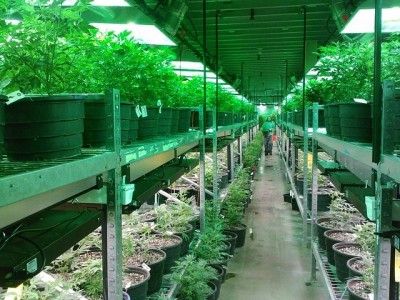
Prev
Next
Things to learn from Washington
The following slides are things that Oregon can learn from the legalization of marijuana in the State of Washington.

Prev
Next
Engage Medicinal Marijuana Industry Experts
Washington has been criticized for not incorporating the medicinal marijuana industry or its experts, in its transition to legalization.
“Give all of the people who are legally in the medical marijuana system an easy path, keep people in place,” lobbyist Geoff Sugerman said.
By being the first state to legalize medicinal marijuana in 1998, Oregon has the advantage of a fully functional supply chain of medicinal growers and retailers.
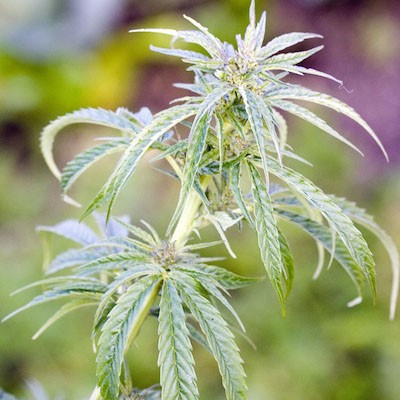
Prev
Next
Connect Growers and Retailers
Washington Retailers say at first it was hard to find newly licensed marijuana growers. The state can help the fledgling industry by helping to better connect producers and retailers, Cannabis City in-store manager Amber McGowan said.
Regulating wholesalers is another way to go between growers and retailers, McGowan said.
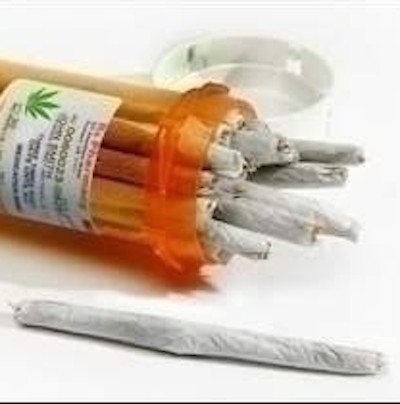
Prev
Next
Phase in Retail and Production Permits together
By proportionately phasing in retail and pot farming permits, Oregon can prevent both the short supply and flooded market that Washington experienced. In July, retailers sold out in days, while the approved growers scrambled to meet the demand. According to McGowan, there are too many growers and not enough retailers to sell to now.
“There are too many farmers going out of business because there are not enough people to sell their product,” McGowan said. “To make it super successful, don’t over saturate the market with growers.”
Solstice Grown grower Alex Cooley advocates not putting a cap on the number of licenses issued at all.
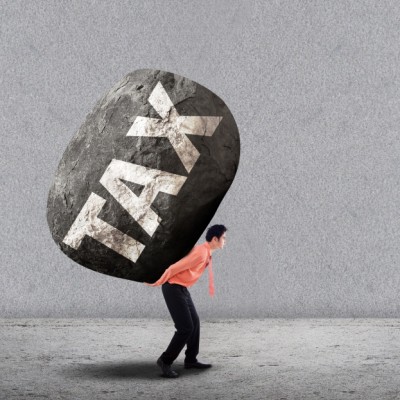
Prev
Next
Avoid Heavy Taxation
In Washington, growers pay an excise tax of 25 percent tax between grower and processor, another 25 percent tax between processor and retailer, and another 25 percent between retailer and customer.
This means a gram of marijuana, which goes for less than $10 on the black market, goes for $25 in retail stores, Cannabis City's Amber McGowan said.
This price differential is driving customers to the black market, critics say.

Prev
Next
Don't Use a Lottery System
To limit the number of retail stores per county, would-be retailers entered a lottery through Washington's regulators to determine who was eligible to apply for a permit.
Critics say the lottery system cut out qualified retailers, some who had experience from the medical cannabis industry, while allowing unqualified people to set up shop.

Prev
Next
Talk to Cities and Counties
Taking into account the laws specific to counties and municipalities will be essential to Oregon’s success in implementation, William Simpson of Northwest Producers and Processors Association.
“The single largest mistake we could make is not talking to the attorney generals, cities and counties about moratoriums and what would be allowed,” Simpson said. In Washington, some license holders were unable to open due to county moratoriums and bans.

Prev
Next
Treat the Industry like Agriculture
Grower Alex Cooley argues that because marijuana is a plant, it should be regulated like an agricultural crop, taking into consideration harvest cycles. Washington suffered a short supply in July, and then a flooded market following the harvest of outdoor crops in the fall.
Cooley urges Oregon regulators to allow crops on farm land, as some Washington cities are now banning grow operations within city limits.
“It’s a plant, it should grow in the sun, not in a warehouse in Seattle,” he said.

Prev
Next
Things to Know
Next up are several things to know about the legalization of Marijuana right here in Oregon.
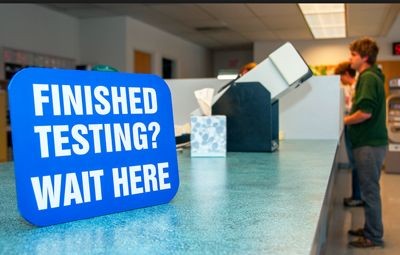
Prev
Next
Drug testing will continue
Despite marijuana being as legally permissible as a pint of beer, many of the largest employers of Oregonians will continue to include marijuana in their employee drug screens.
Fred Meyer, one of the largest employers across the state, said the company plans to continue drug testing its Oregon employees regardless of the new law.
Melinda Merrill, Fred Meyer communications director, said the company employs truck drivers, heavy equipment operators and other positions that require drug screening.
“We have to make our employees safe,” Merrill said.
Companies that employ heavy equipment operators are required to buy insurance. Companies that employ workers who operate machinery while simultaneously employing workers who do not are sometimes offered a lower monthly deductible if they test all of their employees across the board, as opposed to only testing a portion.

Prev
Next
Your neighborhood dealer may be able to stay in business
The average price for marijuana in Oregon is among the lowest in the nation at sightly over $9 per gram, according to data collected by priceofweed.com.
The economy for recreational pot in Washington failed to gain the footing that was expected by some experts. The notion of Seattle being crowned as the new Amsterdam went up in smoke after consumers saw how the state’s taxes increased the price of marijuana - three joints can run a Washington customer $75, while a gram of the plant’s dried flowers cost around $30.
While the taxation in Oregon isn’t expected to bump prices that high, customers who have grown accustomed to the state’s high quality, low-price buds and hash oils may turn their noses up at even the slightest increase.

Prev
Next
Taxes on pot will be different than Washington and Colorado laws
Marijuana sold from licensed vendors in Oregon will carry taxes of $35 per ounce on marijuana flowers, $10 per ounce on all marijuana leaves and trimmings and a $5 tax on all immature plants or clones. The tax rates will be reevaluated every two years and adjusted for inflation. The revenue will be allocated to support government services - 40 percent will support public schools, 20 percent will support law enforcement, 20 percent will support mental health and 5 percent will support the Oregon Health Authority.
State-licensed vendors may still face obstacles, however, when it comes to their federal income taxes. Internal Revenue Section code 280E denies any tax deductions and credits for businesses that traffic any controlled substances that are prohibited under federal law.

Prev
Next
You can’t smoke up wherever you please
The law stipulates that use of marijuana, including injection, ingestion and inhalation of the drug is prohibited in public places. In other words, you won't constanty be seeing (or smelling) people lining sidewalks lighting up a joint.

Prev
Next
There are also restrictions on growing
No one is permitted to have more than four marijuana plants at a time - considerably less than the 12 plants that Washington residents are allowed to grow. The law also restricts plants being grown in public view.
Sorry, window-sill gardeners.

Prev
Next
Marijuana DUIs may be addressed in future legislation
Unlike the Washington law, which included attached regulations concerning driving impairment, Oregon’s law has more room for interpretation.
Driving under the influence of marijuana is classified as a class b traffic violation, which carries a presumptive fine of $260 and is not to exceed maximum fine of $2,000. The Oregon Liquor Control Commission has been tasked with researching the subject of drugged driving and presenting its finding to the Oregon Legislative Assembly no later than January 2017.
After reviewing the OLCC report, the state legislative assembly will decide whether passing more extensive driving regulations will be necessary.

Prev
Next
Legalization won't take effect until summer.
Anyone over 21 will be allowed to possess small amounts of marijuana for their personal use from July 1, 2015.

Prev
Next
Crossing the Columbia River with a state-licensed spliff will catch you a felony
Although marijuana is simultaneously legal in Oregon and Washington, it's illegal to transfer the drug between the two states.
Measure 91 is only applicable to Oregon and marijuana remains illegal under federal law. Even with a physician’s subscription, marijuana is classified as a Schedule I controlled substance - meaning that anyone transporting it across state lines is prosecutable by federal agencies.

Prev
Next
Legalization could mean big money for financial service startups
It’s not just the vendors whose businesses will grow under legalization - companies like Greenpay are expected to expand rapidly once the new legal market gets its footing. Greenpay would allow consumers to instantly purchase marijuana using their smartphones.
Greenpay is a wholly-owned subsidiary of MyEcheck - a publicly traded company whose shares typically trade for less than ten cents on the New York Stock Exchange. With legalization efforts gaining momentum around the country, companies providing auxiliary services for the marijuana industry may create an economic boom.

Prev
Next
Employers that will still test for Marijuana
The following slides are 20 companies that will continue to test their employees for marijuana.

Prev
Next
Jeld-Wen
Industry: Manufacturing and distributing
Headquarters: Klamath Falls, Oregon
Number of Oregon Locations: 2

Prev
Next
Standard Insurance
Industry: Insurance and finance
Headquarters: Portland, Oregon
Number of Oregon Locations: 2

Prev
Next
Seven Feathers Casino
Industry: Hospitality
Headquarters: Canyonville, Oregon
Number of Oregon Locations: 1

Prev
Next
Intel
Industry: Semiconductors
Headquarters: Santa Clara, California
Number of Oregon Locations: 6

Prev
Next
Alaska Air Group
Industry: Transportation
Headquarters: SeaTac, Washington
Number of Oregon Locations: 4
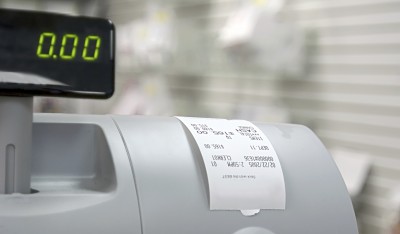
Prev
Next
Fred Meyer
Industry: Retail
Headquarters: Portland, Oregon
Number of Oregon Locations: 50

Prev
Next
Market of Choice
Industry: Grocery
Headquarters: Eugene, Oregon
Number of Oregon Locations: 9

Prev
Next
Willamette Pass Ski Area
Industry: Recreation
Headquarters: Willamette Pass
Number of Oregon Locations: 1

Prev
Next
Bi-Mart
Industry: Retail
Headquarters: Eugene, Oregon
Number of Oregon Locations: 60

Prev
Next
Nordstrom
Industry: Retail
Headquarters: Seattle, Washington
Number of Oregon Locations: 10

Prev
Next
Safeway
Industry: Grocery
Headquarters: Pleasanton, California
Number of Oregon Locations: 97

Prev
Next
Bed, Bath, and Beyond
Industry: Retail
Headquarters: Union, New Jersey
Number of Oregon Locations: 9

Prev
Next
Jack in the Box
Industry: Restaurants
Headquarters: San Diego, California
Number of Oregon Locations: 54

Prev
Next
Costco
Industry: Retail
Headquarters: Issaquah, Washington
Number of Oregon Locations: 13

Prev
Next
Kaiser Permanente
Industry: Healthcare
Headquarters: Oakland, California
Number of Oregon Locations: 60

Prev
Next
Dairy Queen
Industry: Restaurants
Headquarters: Edina, Minnesota
Number of Oregon Locations: 105

Prev
Next
United Rentals
Industry: Construction equipment suppliers
Headquarters: Greenwich, Connecticut
Number of Oregon Locations: 10

Prev
Next
Papé Brothers, Inc.
Industry: Construction equipment suppliers
Headquarters: Eugene, Oregon
Number of Oregon Locations: 24

Prev
Next
Best Buy
Industry: Retail
Headquarters: Richfield, Minnesota
Number of Oregon Locations: 15

Prev
Next
Sinclair Media
Industry: Broadcasting Media
Headquarters: Hunt Valley, Maryland
Number of Oregon Locations: 4

Prev
Next
Washington's Marijuana Legalization Mistakes Oregon Can Avoid
The next set of slides show the mistakes that Washington made that Oregon can avoid when they legalize marijuana.
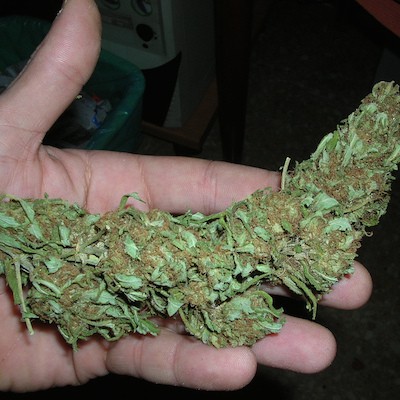
Prev
Next
Supply and demand
An imbalance of supply and demand caused a slew of startup problems for Washington producers and retailers, Cooley said. Oregon can avoid these issues by simplifying and coordinating its permit process, Oregon lobbyist Geoff Sugerman said. Additionally, he said the three separate taxes imposed in Washington drove prices too high, and sent consumers to the black market and elsewhere.
“What we need to make sure of is that our taxing structure is low enough that it doesn’t increase prices so dramatically it drives users back to the black market,” Sugerman said.
Because of those taxes, the going rate for a gram of marijuana at Cannabis City, Seattle’s first recreational pot retailer, is $25.
“Drug dealers sell it for $8 or $9 a gram,” said Cannabis City in-store manager Amber McGowan. “The focus of legalization was to have people avoid the black market. Now we’ve allowed the black market to thrive.”
For this same reason, William Simpson, founder of the Northwest Producers Processors and Retailers group, advocates putting a proposed tax onto the end of the transaction. As it stands, Oregon growers will be taxed $35 per ounce for flowers, $10 per ounce on leaves, and $5 per premature plant.
Because Washington legislators and regulators were afraid of letting too much product onto the market, prices were at a premium when pot retail shops first opened their doors, while a handful of licensed growers scrambled to keep up with demand. Within three days, most of Washington’s marijuana retailers were out of stock. But, by summer, Cooley said the market was flooded with outdoor grown marijuana, and those retailers were paying a fifth as much as they were in July.

Prev
Next
Saturated market
“There’s a glut of product in Washington,” said Cooley.
Oregon could spare the market turmoil, Cooley argues, by proportionately phasing in retail and pot farming permits, and not putting a cap on the number of licenses issued at all. According to McGowan, there are too many growers and not enough retailers to sell to.
“There are too many farmers going out of business because there are not enough people to sell their product,” McGowan said. “To make it super successful, don’t over saturate the market with growers.”
But prior, some businesses that applied for a license had to wait up to a year before knowing if they would get the permit.
The same factors driving Washington users to the black market could send them to Oregon, Simpson said. “Washington is worried about what will happen when there’s an inexpensive market in Oregon, that people will come over the bridge and purchase it here,” he said.

Prev
Next
Keep medicinal experts in place
By being one of the first states to legalize medicinal marijuana in 1998, Oregon has the advantage of a fully functional supply chain of medicinal growers and retailers, who Cooley said should be consulted.
“Bring in the people who have already done it well, and hold up the people who are doing it right as an example,” he said.
Washington has been criticized for not incorporating the medicinal marijuana industry or its experts, in its transition to legalization. Medicinal cannabis was not legal or regulated in the state until after 2012.
“Give all of the people who are legally in the medical marijuana system an easy path, keep people in place,” Sugerman said.
House Bill 2676, introduced for the Feb. session by Rep. Peter Buckley, would give the Oregon Liquor Control Commission (OLCC) dual licensing powers for growers and processors, as well as dispensaries by transferring medicinal marijuana dispensary regulation from the Oregon Health Authority (OHA) to the commission.

Prev
Next
Sense of place
Taking into account the laws specific to counties and municipalities will be essential to Oregon’s success in implementation, Simpson said.
“The single largest mistake we could make is not talking to the attorney generals, cities and counties about moratoriums and what would be allowed,” Simpson said. In Washington, some license holders were unable to open due to county moratoriums and bans.

Prev
Next
Treat it like agriculture
Cooley argues that because marijuana is a plant, it should be regulated like an agricultural crop. He urges Oregon regulators to allow crops on farm land, as some Washington cities are now banning grow operations within city limits.
“It’s a plant, it should grow in the sun, not in a warehouse in Seattle,” he said.
Related Articles
Enjoy this post? Share it with others.





 Email to a friend
Permalink
Email to a friend
Permalink





















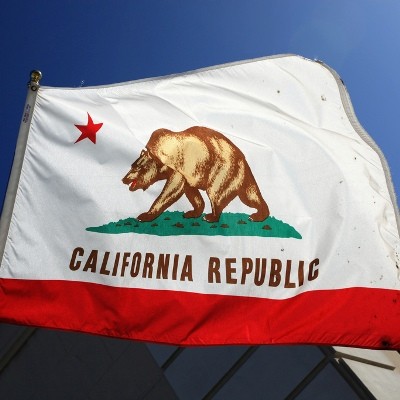










































































Follow us on Pinterest Google + Facebook Twitter See It Read It